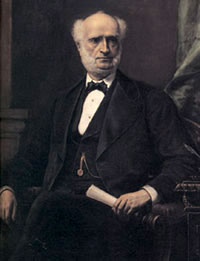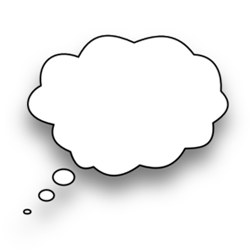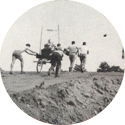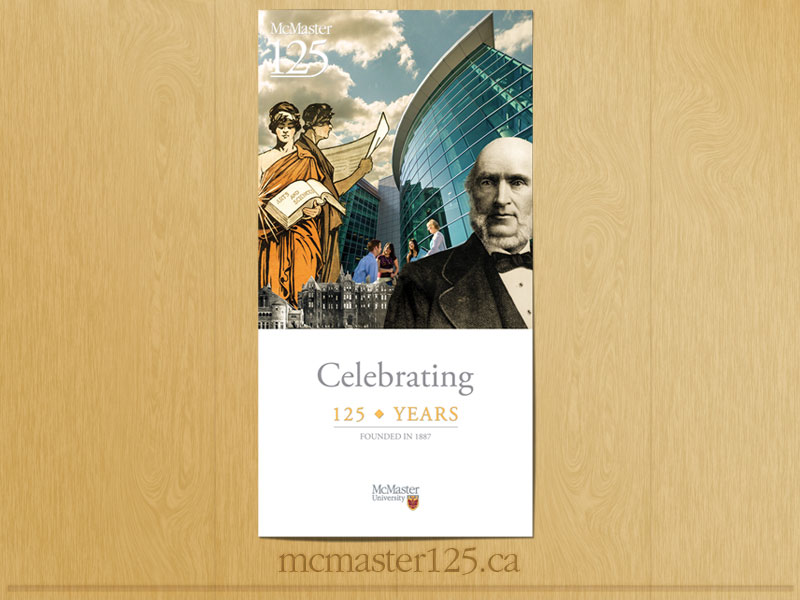William McMaster

William McMaster: Founding Father
by Togo Salmon, hon. ’75
…My task today is to talk to you with authority and conviction, of course about the man that none of us knew, but that all of us are indebted to.
Well, onomastic appearances notwithstanding, William McMaster was neither a Scot, nor a pillar of the kirk… I assure you, positively and solemnly, that McMaster was born (on Christmas Eve on 1811) an Irishman; and still more surprising, he was a Baptist Irishman.
Nevertheless, it does look as if there must have been something atavistically Scottish in his make up, something, that is, in addition to the tartan that, rightly or wrongly, bears his name, and that adds a touch of colour to the graduation certificates issued by the University registrar. At any rate, like any bra'laddie from the glen, McMaster had an uncanny ability to make, and keep, a dollar…
The clearest proof of this is his arrival in Canada in 1833 as a young man of 21, without a penny in his pocket, and his recognition some 30 years later as Toronto’s wealthiest merchant, master of the largest dry goods establishment in all of Canada West… For good measure, he was also by then sitting on the board of directors of assorted other enterprises banks, railways, insurance companies, and sundry unconsidered trifles of that sort.
So towering a figure of the business world could hardly escape involvement in public affairs. His closest political associate that grittiest of Liberals, Brown of the Globe; and with the latter’s help McMaster got himself elected to represent the Midland District of the Legislative Council in 1862. By then, of course, the union of the various regions into which Canada was politically divided was not far off; and when Confederation was duly consummated, McMaster was a member of Canada’s first Senate.
It was April of that same year, 1867 that he founded the Canadian Bank of Commerce, the most enduring and, in view of the giant stature the institution has acquired among the worlds banks today, probably the most important of all his business ventures.
But, no matter how remarkable his many financial accomplishments, it is his legacy in matters spiritual and intellectual that touches all of us most intimately. I have not been able to discover that, in his early years, either he or his first wife, the former Mary Henderson, displayed any particular or exceptional interest in education. Apparently he was first stirred into activity in this sphere by his enlightened friend and pastor, the Rev. Robert Alexander Fyfe.
Fyfe…was concerned that the breadth of every clergyman’s academic instruction should equal the depth of his doctrinal conviction; and to that end he induced his friend McMaster in 1860 to finance a successor to Montreal’s defunct Canada Baptist College, a seminary for the training of Baptist divines. The successor institution founded by McMaster was the Canadian Literary Institution, situated in Woodstock, Ontario; and Fyfe became the first principal…
After 1871, McMaster ventured even further into the groves of academe. His first wife had died three years earlier, and in 1871 he married a widow named Mrs. Fraser. She had born Susan Moulton, and both she and her pastor, the Rev. John Harvard Castle, the first occupant of the pulpit in the new and handsomely rebuilt Baptist church in Jarvis Street, Toronto, had a lively and abiding interest in education generally. Their infectious enthusiasm reinforced McMaster’s growing preoccupation with public instruction, and from now on the senator was actively committed to the promotion of educational excellence in the province of Ontario.
In 1879, he brought the theological department of Woodstock College to Toronto, established it in a building he erected for it on Bloor Street West (known ever since as McMaster Hall), expanded curriculum to include general arts subjects, and insisted that it be called Toronto Baptist College, not seminary. His ongoing generosity enabled this college to avoid absorption by the University of Toronto, then burgeoning all around it.
Indeed, on the 23rd of April 1887, the Ontario legislature was induced to pass a bill recognizing McMaster University – that was the expression used – as a separate and independent institution; and when, six months later on the 22nd of September 1887, the childless McMaster departed from this vale of tears, he left the bulk of his estate, amounting to almost $1 million to the newly authorized university.
In today’s inflationary climate a million dollars may not seem all that much…. But in the late Victorian era, a million dollars was a vast amount, a veritable fortune. No Canadian university had ever received such a princely gift in a single lump sum, and McMaster bequest was little short of sensational.
Nor did the generosity of the McMaster family end there: his widow presented the new university with the family mansion in Toronto (on Bloor Street, just east of Yonge), and the University transformed this into a school for girls called Moulton College that endured to the year 1954.
Of William McMaster’s two magnificent foundations – a great Canadian bank, and what the Canadian Dictionary of National Biography calls (with some understatement, I feel), “an important educational institution” – we assembled here today are bound, of course, to award the primacy of the latter. Indeed, I envisage all visitors to this campus, like visitors to Christopher Wren’s tomb in St. Paul’s Cathedral in London, murmuring: si monumentum requiris, circumspice (“if you are seeking his monument, look around you”)….





